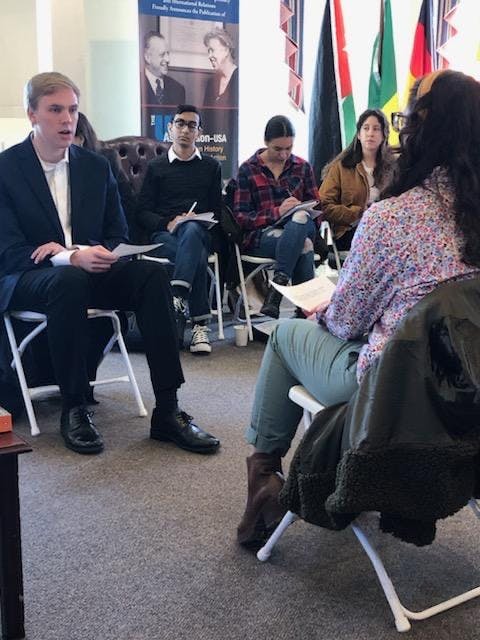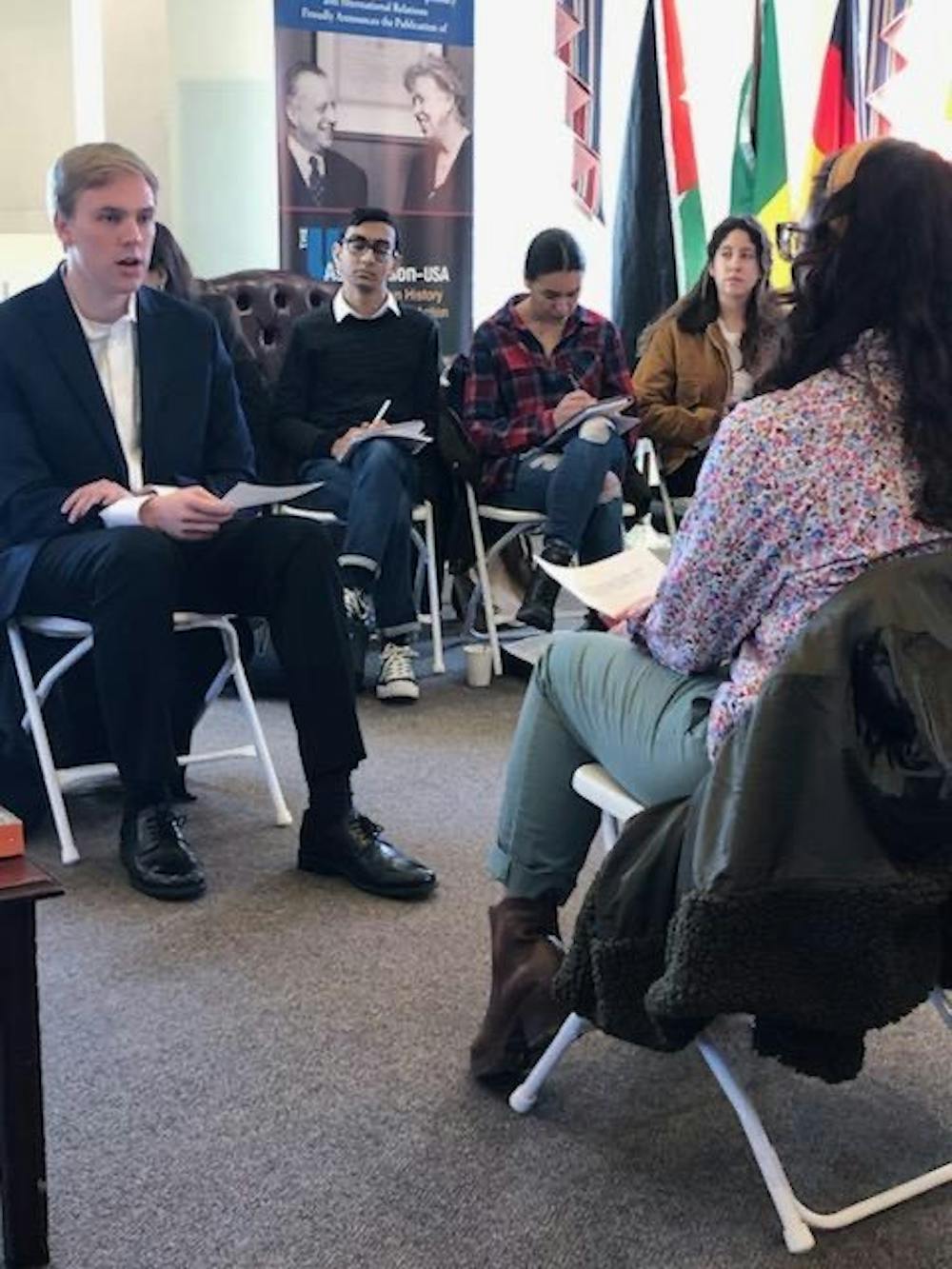On Feb. 14, the School of Diplomacy hosted Eli McCarthy, professor of Justice and Peace Studies at Georgetown University. McCarthy led a conference on non-violent conflict (NVC) and how it can help people not only in diplomatic situations but also in everyday interactions.
As opposed to a four-hour lecture or a panel of experts talking, McCarthy took an interactive approach, allowing the participants in the conference to take part in different activities throughout the conference. This included a mock debate between the United States and Iran in which they used NVC strategies to try to find a solution to their issues.
McCarthy shared how he came up with the interactive style of the conference.
“A conference like this requires a participatory approach,” McCarthy said. “The best way to learn non-violent conflict is to practice it with other people. We also have a strategy for our workshops that involves drawing on personal experiences, which is accomplished through the interactive approach.”
McCarthy, the director of the DC Peace Team, said the event can help people understand others more fully.
“Non-violent conflict originated in interpersonal conflict, and these skills are crucial no matter what role you are in, such as a family member or a roommate,” McCarthy said. “Marshall [Rosenburg] came up with the idea of NVC because he was having problems of his own, and he saw that other people were having problems as well, so he came up with a way to get through them.”
Some of the other activities that McCarthy had the participants partake in included playing card games, talking with each other one-on-one and identifying the other person’s needs.

NVC helped people learn how to speak to effectively communicate through conflict.
NVC consists of four main parts. In each situation, students had to observe the situation, address the feelings of the person, address the needs of the person and then acknowledge their requests. McCarthy used an activity where statements were read, and the members of the conference had to distinguish if the person was using one of those four things or something else.
This was done to help people learn how they can speak to effectively communicate through conflict and how to recognize when someone else is trying to do the same.
Kieran Besancon, a freshman diplomacy and international relations major, shared why he thought NVC is important to diplomacy.
“Diplomacy is not defined by violence, it’s, in fact, the opposite,” Besancon said. “It’s inherently lacking in violence, so non-violent conflict is the most important part of diplomacy.”
Eric Bunce, a freshman diplomacy and international relations major, also shared on just how vital NVC is to diplomacy.
“War is an extremely devastating conflict that we cannot afford to have,” Bunce said. “We need NVC in order to save human lives and find peaceful solutions to potentially violent situations.”
Alexander Krukar can be reached at alexander.krukar@student.shu. edu.





